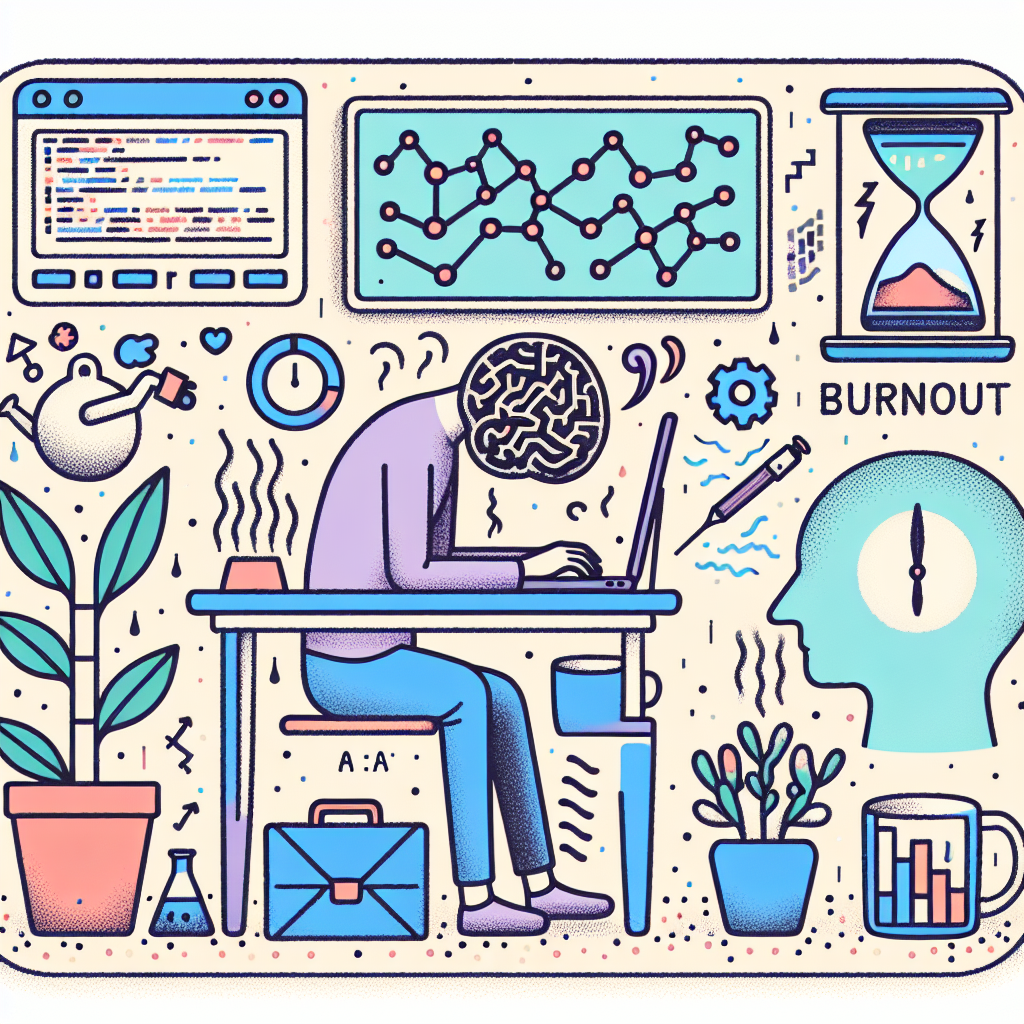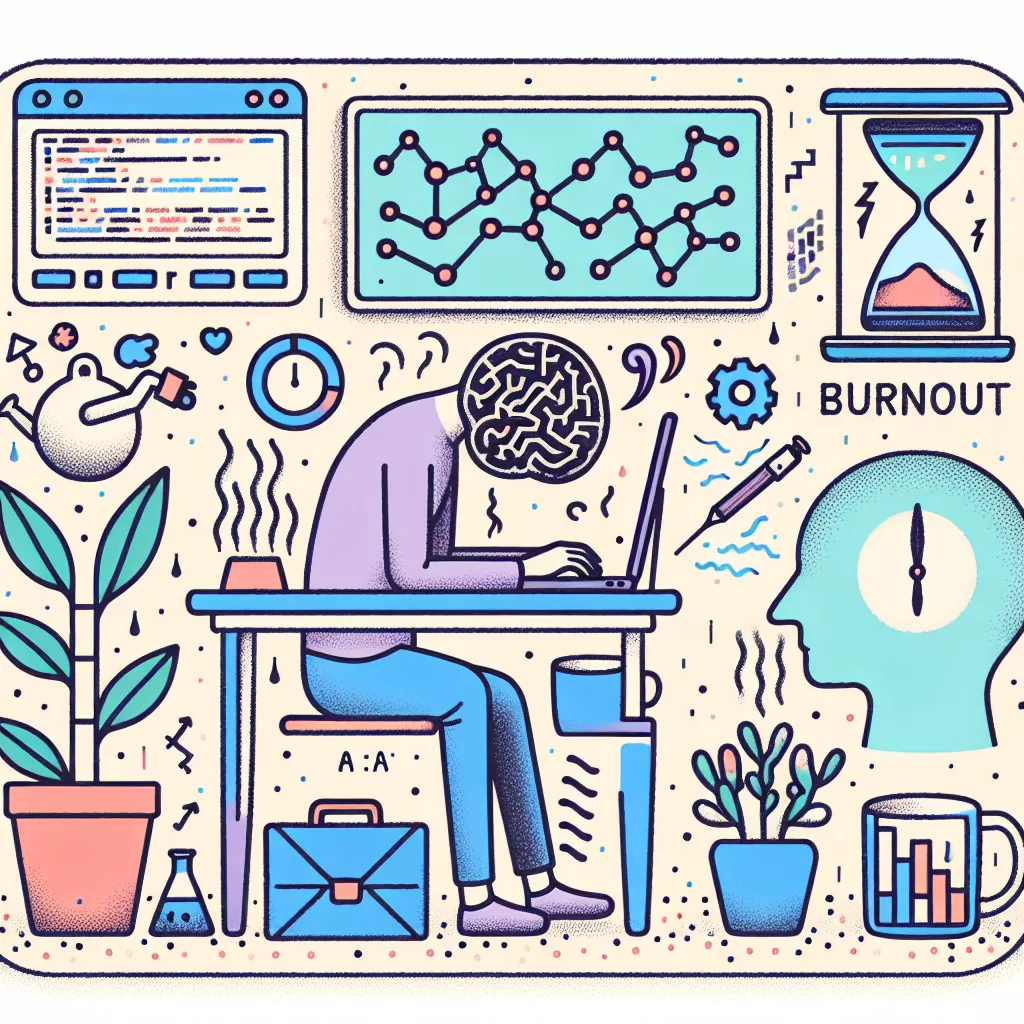The grind of optimizing algorithms and processing endless data sets places AI Data Scientists at a higher risk for burnout.

- High demand for constant skill updating and learning.
- Complex problem-solving over extended periods.
- Pressure to deliver innovative AI solutions consistently.
- Long working hours common in tech roles.
- Uncertainty in rapidly changing technology landscapes.
- Intense focus on data accuracy and model performance.
- Isolation from working with machines more than people.
Data indicates that career burnout statistics for AI Data Scientists are assessed as Moderate.
Reasons AI Data Scientists burnout
According to the science to date there are key reasons people burnout at work. Here’s our top reasons why AI Data Scientist in the Technology category has a burnout risk of Moderate:
You might find yourself facing burnout as an AI Data Scientist due to several key factors. One major cause is the high-pressure environment. You may experience intense deadlines and expectations from stakeholders, which can lead to stress and fatigue. This relentless pace often leaves little room for rest or recovery.
Moreover, cognitive overload plays a significant role. You are required to process and analyze complex datasets and algorithms continuously. The mental strain of problem-solving and critical thinking without adequate breaks can become overwhelming.
Another contributing factor is the rapid evolution of technology. The need to constantly update your skills and knowledge base to stay relevant can be daunting. This ongoing demand for learning adds to the stress, as you’re expected to keep up with new tools, languages, and methodologies.
You might also encounter isolation due to the solitary nature of the work. Long hours spent focusing on data in front of a computer can reduce opportunities for social interaction, which is essential for mental well-being.
Work-life balance is often a challenge in this career. You may find it difficult to disconnect outside of work hours, leading to an inability to relax. The blurring of lines between personal and professional life can exacerbate stress levels.
Finally, a lack of clear communication and support from leadership can make you feel undervalued or misunderstood. This lack of support can lead to frustration and contribute to burnout over time.
Burnout rate data for AI Data Scientist/Technology
There is limited specific data regarding burnout in the role of AI Data Scientists or within the technology industry. However, general studies indicate that burnout is prevalent in tech roles due to high workloads and rapid innovation demands. The World Health Organization has recognized burnout as an occupational phenomenon, drawing more attention to mental health in tech sectors.
Research indicates that long work hours and the pressure to constantly upskill contribute to mental health challenges. Tech employees often face work-life balance issues, which can lead to burnout. It is critical for organizations to recognize these challenges and implement supportive measures.
For a broader perspective on occupational stress, you might visit sources like the National Institutes of Health (https://www.nih.gov) or reviews from leading mental health organizations (https://www.who.int/news-room/questions-and-answers/item/mental-health-in-the-workplace) for more general information on burnout.
Do you have experience of Burnout as a AI Data Scientist or in Technology?
Share your story about AI Data Scientist burnout on our share your story page.
Burnout in Technology
Career Burnout Rates > Burnout in Technology > AI Data Scientist Burnout


